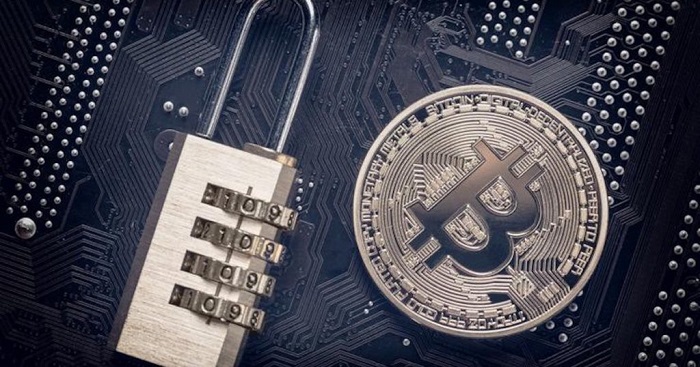The use of digital assets in different societies is increasing day by day. But what are the best conditions for keeping these assets?
According to the IDEA, In the current era, which is known as the digital age, everything, even the capital that was buried in safes in the past, has become digital assets that are kept in wallets that are also digital. In the past, it was necessary to observe the points that would minimize the possibility of thieves reaching these safes. In the digital age, it is necessary to consider some points for the safe keeping of assets, and users should be familiar with the mechanism of virtual currencies.
These days, Iranian users have access to all kinds of volts and they trust some of them. For example, the Blockchain Association has warned about the Telegram Volt, and experts in this field also emphasize that Iranians should not use Volts to store their digital assets.
Adhering to safety precautions is essential for all people who have opened an account on digital assets. This is while the people of our country have to redouble their caution due to the challenges they face in spite of things like sanctions etc. According to the digital currency report, about 22 percent of Iranian people now have digital currency. Also, 29% of Iranians have used or invested in digital currencies. This shows that the importance of maintaining this asset is more than ever.
In an interview with Digiato, Omid Alavi, Chairman of the Board of Directors of the Blockchain Association, pointed out that in the heated situation in any conflict, the parties use any means to confront the other party, and said: “Undoubtedly, one of the parts in The area that suffers is financial markets and places where people are able to move their money in that environment. Cryptocurrencies are one of the tools that many countries use for financing.”
He also emphasized that the people involved in this field should be careful and continued: “The reports that were raised about the digital assets of Iranians showed that ten million Iranian wallets were tracked and the transaction process can also be tracked. . Iranian people should be very careful in how they move their digital assets, especially in foreign exchanges. “Exchanges that are governed by the laws of different countries have the possibility of freezing the assets of Iranians.”
“Exchange is not a place to keep assets”
According to the chairman of the board of the Blockchain Association, the point of care is not that people necessarily go to use physical or hardware wallets, but the most important thing is related to the principles of keeping digital assets; It means users learn how and where to keep their assets.
Pointing out that the exchange is not a place to store assets, he explained: “The exchange is merely a place for exchange and exchange.” People should not keep their assets in any exchange (whether domestic or foreign) for a long time. Since foreign companies have many ways to identify Iranian accounts and many users of these exchanges do not have a high level of IT literacy to erase their traces, working with foreign exchanges is a high risk.”
Wallets, the safest place to store digital money
Alavi believes that if the volume of assets is large and they are to be kept for a long time, it is better to keep them in personal wallets (hardware and software). In addition, the principles of keeping these wallets also require learning.
He also pointed out that transparency is one of the principles of blockchain and it is impossible to erase traces in such a transparent network. Alavi also said about the principles of using wallets: “For example, if the exchange is to be done in domestic exchanges, there are a series of wallets for this purpose. For example, we should not contaminate the main assets and large capitals with the wallet that was connected with Iranian exchanges. Compliance with these points will ensure that assets are kept with high security.”
According to the Chairman of the Board of the Blockchain Association, usually in the discussion of security and privacy, how much capital is very important. It is the amount of capital and concern that determines the amount and levels of security and privacy. This number is different for different people. It is important for people to know their risk limit and observe security measures accordingly.
Alavi stated that Iranian users are very different from users of other countries and said: “If the people of other countries are not very involved in these issues, it is because their country is under the supervision of FATF, is not involved in sanctions or is not in the jurisdiction and in case Fraudsters can claim damages. Due to the weakness in international communication, people should pay attention to the fact that Iranian users should improve their literacy in this area and work with foreign platforms more carefully.”
The risk is never zero
“Soheil Nikzad”, an expert in the field of digital currency, also agrees with Alavi about the safest place to store digital assets. “In general, offline methods are more reliable,” he said, noting that the best way to protect crypto assets is to keep them in a hardware wallet. But working with these tools requires training, and this training requires basic knowledge or the user’s time. The user must have up-to-date information and know what software to use. These tutorials are usually available on the internet.
Of course, Nikzad believes that using these wallets will never reduce the risk to zero. He explained about the challenges of using these wallets: “One of the challenges of having a wallet is that for any reason, people may lose their hardware wallet; For example, their wallet burns or they lose it. Another challenge is that the backup information of these wallets may be available to other people for some reason.”
Nikzad still believes that using these wallets is the least risky way. “If the user knows how to use these wallets, nothing will happen to them,” he said, pointing out that the least effective place sanctions can work on is offline hardware wallets. Offline wallets are a series of applications where the password of each person’s wallet is his own. Hardware wallets are also a type of electronic device.
If these wallets are used, sanctions have the least effect on users. Of course, the risks are not zero and a series of points should be considered. For example, to use and connect to the Internet, you must connect to a VPN so that your IP is not recognized.
Nikzad emphasizes that in offline and hardware wallets, if the IP is detected, it threatens the user with two risks; One is that the software is no longer updated, and the second is that the user’s address is banned. In this case, the user’s money and assets are safe, but cannot be transferred to centers that do not accept the user’s assets due to sanctions.
He also explained about the types of cryptocurrencies: “There are two categories of cryptocurrencies. One of them is completely autonomous. The other category is those who are semi-autonomous. The owner of assets that are completely autonomous (such as Bitcoin, Ethereum and Tron, etc.) can do whatever he wants and only needs to acquire skills.
But currencies like Tether are semi-autonomous; It means that the issuer can block your money for any reason. If the user holds risky assets such as Tether, it may be detected and the asset blocked.”
Although keeping digital currency and making transactions with it is increasing day by day in various fields, it still has its own challenges and risks. In addition, we are facing problems in our country such as embargo and internet disruptions, which makes us unable to use all the capacities of the digital world in a safe and secure manner.




No Comment! Be the first one.